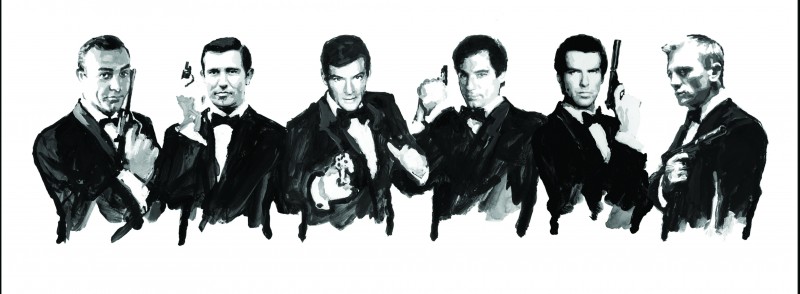The past, present and future of ‘bond, james Bond’

A retrospective look at 53 years of James Bond and a glance into the future of the British icon

Once you have 20 films in a series, you have developed institutional status even among those who have never seen any of the pictures.
“Bond, James Bond,” having martini shaken not stirred, the Aston Martin, the Walther PPK, Q’s gadgets, M’s parental placement: these are icons of Euro-North American culture and Bond himself is a legend.
Philippa Gates, a professor in the department of English and film studies has been a long-time fan of the series.
“I remember when the Eastern Bloc broke up my father said, ‘James Bond can’t exist without the Cold War,’” Gates said.
And yet the series kept going.
“I think what they managed to do with the Daniel Craig series is reinvent a genre that was disappearing. The Roger Moore was too hokey and cheesy and campy — it didn’t really have relevance. Then you get to the Timothy Dalton era and it’s a British version of an American fantasy, and then Pierce Brosnan is kind of the American version of a British fantasy,” Gates explained of the actors that have played Bond over the years.
Craig’s Bond is different though. Gates said it feels “real” because the novels are about a very “traumatized, damaged guy.”
”So Daniel Craig makes more sense, but then I think it really is just about him as a person now. Skyfall is all about his trauma, it’s not about national politics.”
In an informal survey of 56 ranked lists of the Bond films from the past few years from sources listed online, it’s abundantly clear the Bond series means different things to different people. There are some trends that most fans fall into.
Connery and Craig are the most popular while on the whole, Moore and Brosnan are the least popular.
In the middle is Dalton who qualifies as the most divisive Bond. Some love his two films and compare his run to Craig’s while others see him as too serious after Moore. George Lazenby’s one film, On Her Majesty’s Secret Service, used to be the most reviled film in the series but has seen a critical revival and now appears in the top five in most lists.
Die Another Day and A View to a Kill are by far the least popular while Goldfinger and Casino Royale rank in the top five 90 per cent of the time. The most divisive film of the series is License to Kill, which ranks anywhere from the best to the worst in series’ history.
But when you go in and read the reasoning for the rankings, you get a more complicated picture. Some people are committed to the more jocular Bonds like Brosnan and Moore, enjoying the puns in their films and their light-hearted nature.
Those fans are generally quite negative on Dalton and Craig for being too dark and dour while the exact opposite is true for other fans — finding the puns and silliness to be the weak point of the series.
Connery is still universally beloved, but some are starting to see cracks in his films, especially given how he treats women. Goldfinger, still the fan favourite, is starting to be known rightly as the only film where Bond rapes one of the Bond Girls. Modern trends in film style are also starting to affect the Connery films, with fast pacing being valued more over the slower sequences found in Thunderball and You Only Live Twice.
But what unites all the fans of this series is that they are always looking forward to the next film, hoping to be exhilarated and entertained again. Bond goes anywhere, does anything and can be all things. The continuity is really unimportant to Bond’s ability to last as a character because he’s already eclipsed more genres than one would expect for a British Spy.
Bond is so iconic that he is beyond canon, beyond continuity, he can truly do anything.
That potential makes Bond fascinating to look at for the future. Will we see a Bond set in a different era? Will we ever have a female Bond, or a gay Bond (we already have a potentially bisexual one)? Will we have a person of colour as Bond at some point (Idris Elba)? With development of film industries in Africa and East Asia, will we someday see a multi-national Bond franchise?
Bond’s lasting power is a real force of culture and for fans of the series it keeps us excited for the next time we see him walk across the screen.

